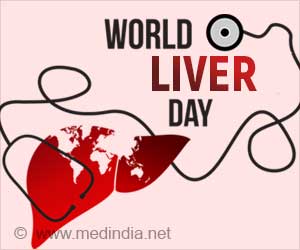New research finds that administration of probiotics reduces risk of respiratory infections in pre-schoolers; it also has a significant effect in reducing episodes and duration of diarrhea. Probiotics are live microorganisms (mostly bacteria) which when consumed may provide health benefits. The current study proved the beneficial effect of a strain called Lactobacillus reuteri DSM 17938. Probiotics are widely available over the counter in the form of capsules or drops; they are also found incorporated into foods like yogurt.
When given daily probiotics for three months, preschoolers were found to suffer fewer respiratory infections and attacks of diarrhea than classmates taking a placebo, reported Dr. Pedro Gutierrez-Castrellon, who led the study.Children are more prone to get infections than adults; they pick up respiratory infections and stomach upsets frequently. Most of the time they acquire these from daycare centers or schools. Diarrhea is particularly common and very often tends to be dangerous if untreated. Though diarrhea is the body’s natural mechanism to get rid of germs, it can lead to dehydration. Most cases of diarrhea last for less than a week.
Important symptoms of diarrhoea include:
• Fever
• Nausea/ Vomiting
• Abdominal pain
• Dehydration - child may get fatigued due to fluid loss
Our ammunition mainly consists of fluid corrective methods especially oral rehydration solution (ORS). Experts advise mothers to continue giving breast milk, ORS, and safe water in excess amount to infants and young children.
The common respiratory infections include flu and cold; many cases are caused by viral infections. Bacterial causes are not uncommon in children under the age of five.
Significant reduction in the incidence of infections was found in the group on probiotics. For example during the first three months alone only 42 episodes of diarrhea that lasted for an average of 1.4 days could be recorded in this group. These values were 69 episodes and 2.5 days for the group on placebo. Respiratory symptoms showed a more evident disparity, 93 cases in the kids on probiotics and 204 in the placebo group.
Fewer infections mean fewer medical visits, lesser requirement of rehydration fluids and drugs, these translate to better national savings and healthier kids. Probiotics would revolutionize the field of pediatric preventive medicine.
Daycare centers are vulnerable hubs for spread of infections; kids pass everything around! There are a large number of probiotics in the market; pharmacists must know which are the best and assist parents in finding the right one.
References: Diarrhea in Preschool Children and Lactobacillus reuteri: A Randomized Controlled Trial- Pediatrics
Source-Medindia














